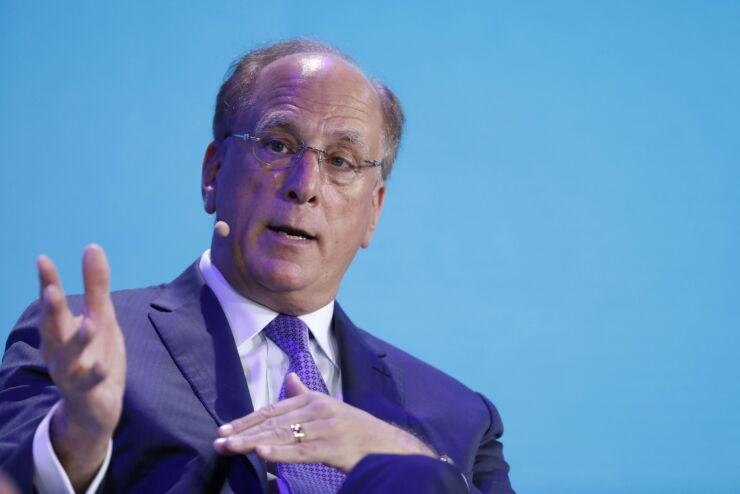BlackRock CEO Larry Fink said he worries that working remotely results in a lack of productivity and collaboration.
“The most difficult issue for all of us is retention of a culture,” Fink said Thursday during a virtual conference hosted by Morningstar. “Cultures were not meant to be done in a remote fashion.”
Fink said that although he’s proud of how the New York-based company has performed through the COVID-19 pandemic, he’s concerned about 400 new young hires who joined in July, who have never been to the office.
BlackRock, the world’s biggest asset manager, said last month that it would allow employees to work remotely for the rest of the year. While some big Wall Street firms are seeking to get staff back to the office, there are already signs of how challenging that could be. JPMorgan Chase sent some workers home this week after an employee in equities trading tested positive for COVID-19.
-
The 4,000-person regulator in March was one of the first federal agencies to tell employees to stay home due to the public health emergency.
July 14 -
Wealth management firms will retain employees when they offer flexibility, not just one-off perks.
March 24 -
The fund will track industries such as cloud technologies, remote communications and cyber security, according to an SEC filing.
April 9
JPMorgan CEO Jamie Dimon said this week that he sees prolonged remote work inflicting
“Going back to work is a good thing,” Dimon said in a panel discussion Tuesday.
At BlackRock’s hubs in New York, San Francisco and London, fear of using public transportation could be a “limiting factor” in getting employees back to work, Fink said. Almost a third of the company’s senior executives were at the office this past week, and Fink aims to be there at least three days a week from now on, he said.
During a call with clients in March, Fink said he was initially skeptical of his ability to work from home but that he thought it had made him more productive.
Now, as he thinks about strategy, Fink said he fears that big ideas and impromptu “water-cooler moments” will be lost as businesses operate remotely via video conference calls.
Still, he said he doesn’t expect that all BlackRock employees will return to the office after the pandemic ends.
“I actually believe maybe 60% or 70%,” he said, “and maybe that’s a rotation of people.”






